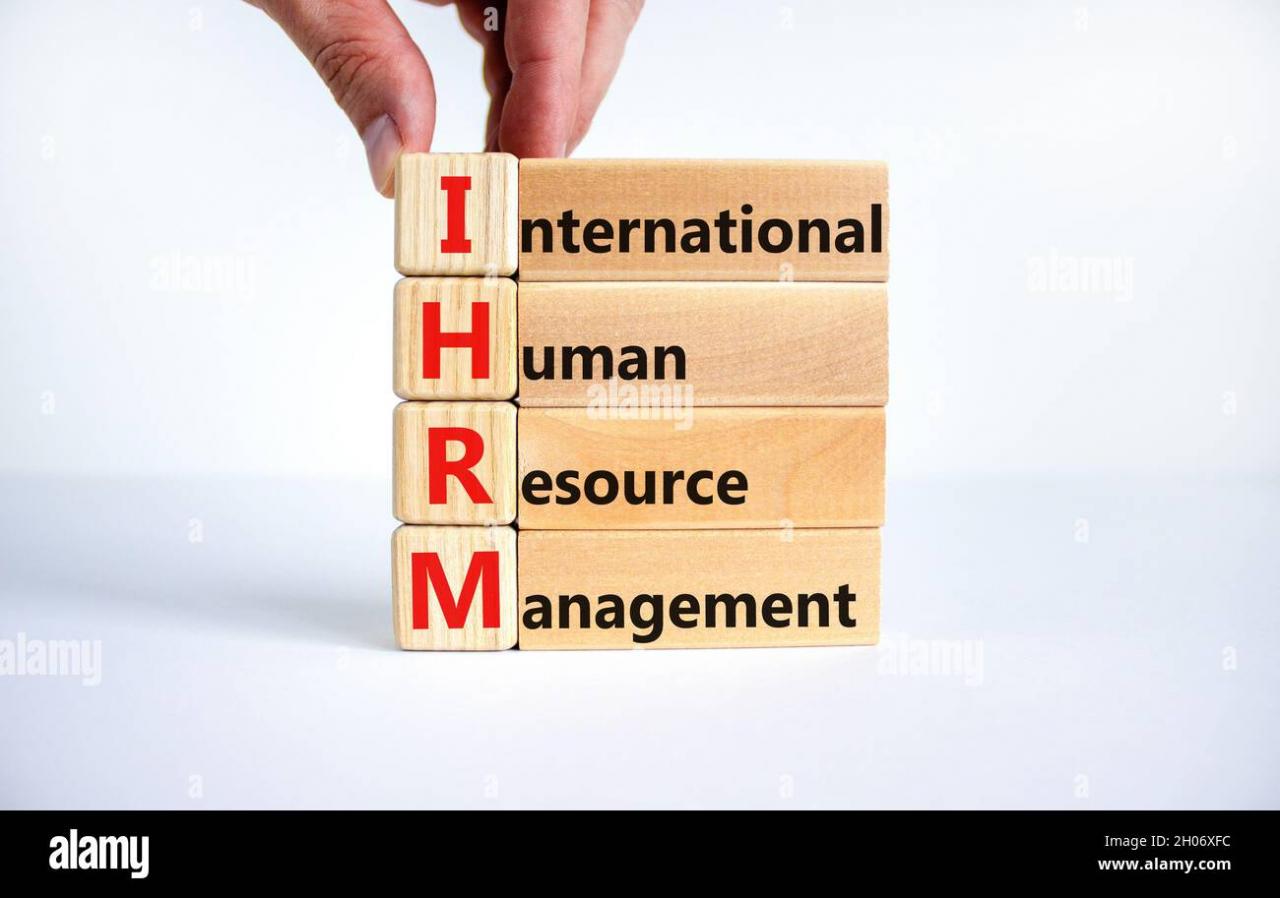In today’s globalized business landscape, an integrative framework of strategic international human resource management (SIHRM) is essential for organizations seeking to navigate the complexities of managing a diverse workforce across borders. This framework provides a comprehensive approach to aligning HR strategies with overall business objectives, ensuring that organizations can attract, develop, and retain the talent they need to succeed in the international arena.
An integrative framework of strategic international human resource management considers the complex interplay of global and local factors in managing a diverse workforce. By embracing diversity, organizations gain access to a wider pool of talent, foster innovation, and enhance their ability to navigate cross-cultural challenges.
s an advantage of managing a diverse workforce. This framework provides a holistic approach to managing international human resources, ensuring that organizations can effectively attract, develop, and retain a global workforce that drives organizational success.
This framework encompasses key dimensions such as talent management, performance management, compensation and benefits, and employee relations, ensuring that organizations can effectively manage their human capital on a global scale.
An integrative framework of strategic international human resource management can help organizations navigate the complexities of managing a global workforce. An information systems manager can play a crucial role in implementing and maintaining the necessary systems and processes to support this framework, ensuring seamless communication, data management, and compliance across borders.
1. Strategic International Human Resource Management (SIHRM)

Strategic International Human Resource Management (SIHRM) is a comprehensive approach to managing human resources in multinational corporations. It aligns HR practices with the strategic goals of the organization, taking into account the unique challenges and opportunities of operating in multiple countries and cultures.
An integrative framework of strategic international human resource management emphasizes the alignment of HR practices with organizational strategy and global business objectives. An important principle of change management is to communicate effectively and involve employees in the change process. By integrating these principles, organizations can foster a culture of adaptability and continuous improvement in their global HR practices.
SIHRM involves managing human capital across borders, ensuring that the workforce is aligned with the organization’s global strategy. It includes practices such as talent acquisition, performance management, and compensation and benefits, tailored to the specific needs of each country or region.
An integrative framework of strategic international human resource management is essential for any organization operating in a globalized world. Such a framework provides a comprehensive approach to managing human resources across borders, ensuring alignment with business objectives. An enterprise like A to Z Jobs offers a full suite of human resource management services, including international recruitment and onboarding, that can support organizations in implementing an effective integrative framework.
Key Dimensions and Components of SIHRM
- Global Mindset:Developing a workforce with a global perspective and understanding of different cultures.
- Talent Management:Attracting, developing, and retaining talented employees worldwide.
- Cross-Cultural Communication:Facilitating effective communication and collaboration across diverse cultures.
- Compliance and Ethics:Ensuring adherence to local laws and regulations, as well as ethical business practices.
- Employee Relations:Managing relationships with employees in different countries, addressing cultural differences and local labor practices.
Examples of SIHRM Practices in Multinational Corporations, An integrative framework of strategic international human resource management
- Starbucks:Implementing a global training program to develop employees’ cross-cultural skills and knowledge.
- Google:Creating a diverse and inclusive workforce by recruiting and hiring from a global talent pool.
- IBM:Establishing a global mobility program to facilitate employee transfers and assignments across countries.
Summary
By implementing an integrative framework for SIHRM, organizations can gain a competitive advantage by leveraging the diverse skills and perspectives of their global workforce. This framework provides a roadmap for organizations to navigate the challenges of international HR management, ultimately contributing to improved organizational performance and employee satisfaction.
An integrative framework of strategic international human resource management can also be applied to agriculture. For instance, an expert in crop production and soil management can be recruited from abroad to help a local company improve its agricultural practices. This approach can lead to improved productivity and profitability for the company.
Commonly Asked Questions: An Integrative Framework Of Strategic International Human Resource Management
What are the key components of an integrative framework for SIHRM?
An integrative framework for SIHRM typically includes components such as talent management, performance management, compensation and benefits, employee relations, and HR technology.
How can organizations implement an integrative framework for SIHRM?
Implementing an integrative framework for SIHRM involves assessing the organization’s current HR practices, developing a comprehensive plan, and securing buy-in from key stakeholders.
What are the benefits of using an integrative framework for SIHRM?
An integrative framework for SIHRM can improve organizational performance, enhance employee engagement, and reduce HR costs.
An integrative framework of strategic international human resource management provides a comprehensive approach to managing employees in a global context. This framework encompasses various aspects, including workforce planning, talent acquisition, and performance management. For instance, in the context of an assistant manager’s duties, an assistant manager duties may involve supporting the store manager with daily operations, managing staff, and ensuring customer satisfaction.
By understanding these duties and aligning them with the broader framework of strategic international human resource management, organizations can effectively attract, develop, and retain a talented workforce in the global marketplace.
Strategic international human resource management encompasses a holistic approach to talent management across borders. Its framework incorporates elements of cross-cultural adaptation, global talent acquisition, and performance management. By studying an analysis of Yukon Delta salmon management , we can gain insights into the challenges of managing human resources in a complex international environment.
Such frameworks empower organizations to navigate the complexities of global HR, fostering a diverse and inclusive workforce that drives organizational success.